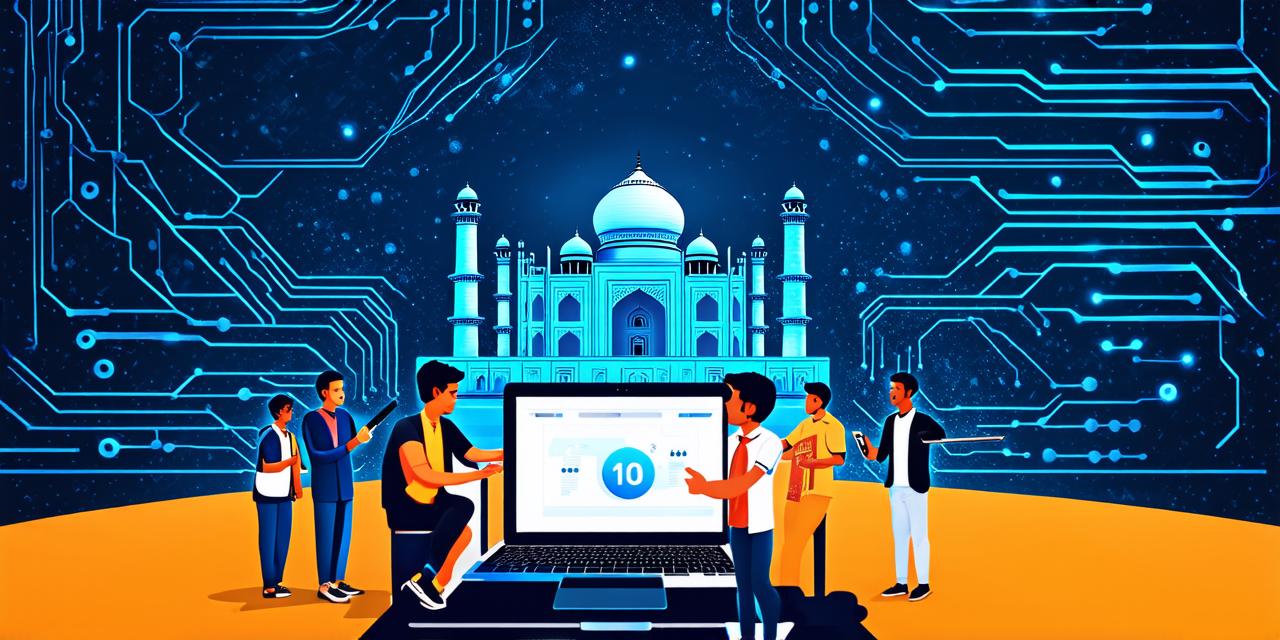Introduction
As the world becomes more digitized, it is no surprise that mobile app development has become an essential aspect of many businesses. In particular, Android developers are in high demand due to the large market share of this operating system. However, with a plethora of Android developers available in India, it can be challenging to find the right talent for your project. This article explores why hiring Android developers in India is an excellent option for unlocking top tech talent affordably.
Why Hire Android Developers in India?

There are several reasons why you should consider hiring Android developers in India:

- Large pool of talent: With over 2 million software engineers, India has a massive pool of talent to choose from. In particular, the country has a growing number of Android developers, making it an ideal location for finding skilled professionals in this field.
- Cost-effective: Hiring Android developers in India can be significantly more cost-effective than hiring locally. The average salary for an Android developer in India is around $4,000 per month, which is much lower than the equivalent salary in other countries like the US and UK. This means you can get access to top talent at a fraction of the cost.
- Flexibility: Indian developers are known for their flexibility and willingness to work remotely. This means you can hire Android developers from anywhere in the world, giving you access to the best talent regardless of your location.
- Cultural fit: India has a strong cultural background in technology, with many of its tech companies being globally recognized. This means that Indian developers are well-versed in the latest technologies and trends, making them an ideal choice for any project.

Case Studies: Unlocking Top Talent with Android Developers in India
To further illustrate the benefits of hiring Android developers in India, let us look at some real-life examples:
- Ola – one of India’s leading ride-hailing companies – hired over 500 Android developers from India to develop its app. This allowed the company to tap into the large pool of talent available in the country and create a high-performing app that met the needs of its users.
- Flipkart, one of India’s largest e-commerce companies, also hired many Android developers from India to develop its app. This allowed the company to leverage the skills and expertise of Indian developers to create a cutting-edge app that provided a seamless shopping experience for its customers.
- Paytm, India’s leading digital payment platform, also relied heavily on Android developers to build its app. The company hired over 1,000 developers from India, giving it access to the best talent in the country and allowing it to create an app that was both secure and user-friendly.
The Expert Opinion: Why Hiring Android Developers in India is a Smart Move
According to Dr. Sanjay Gupta, CEO of AppsFlyer, “Hiring Android developers in India is a smart move for any business looking to unlock top tech talent affordably. With a large pool of talent, flexible working arrangements, and a strong cultural fit with technology, India is the ideal location for finding skilled Android developers.”
Dr. Gupta goes on to say, “In addition, India has a thriving startup ecosystem, which means that there are many young, talented developers who are eager to work on cutting-edge projects. This makes it an excellent opportunity for businesses looking to tap into the latest technologies and trends.”
FAQs: Frequently Asked Questions about Hiring Android Developers in India
1. What is the average salary for an Android developer in India?
The average salary for an Android developer in India is around $4,000 per month.
2. Are Indian developers flexible and willing to work remotely?
Yes, Indian developers are known for their flexibility and willingness to work remotely.
3. What is the cultural fit between India and technology?
India has a strong cultural background in technology, with many of its tech companies being globally recognized. This means that Indian developers are well-versed in the latest technologies and trends.
